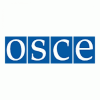
International Consultant – Renewable Energy and Education Experts in Central Asia (Roster Call)
OSCEVienna, ATEconomic & Environmental Affairs SEC Requisition # Total Views
Background :
The Organization for Security and Co-operation in Europe (OSCE) with 57 participating States is the worlds largest regional security organization. All 57 participating States enjoy equal status, and decisions are taken by consensus on apolitically, but not legally binding basis.
The Office of the Co-ordinator of OSCE Economic and Environmental Activities (OCEEA) works to strengthen security and stability in the OSCE region by promoting international co-operation on economic and environmental issues.
The Energy Security Unit, within the Office of the Co-ordinator of OSCE Economic and Environmental Activities (OCEEA) of the OSCE Secretariat, is mandated to promote dialogue and co-operation on a wide range of energy security issues, from protection of critical energy infrastructure to promoting the transition to renewable energy sources (RES).
Objective of Assignment :
Workstream 1 : Developing course(s) in the area of renewable energy systems in Central Asia
This initiative is supporting universities and technical and vocational education and training (TVET) institutions to develop the necessary expertise and curricula to build gender-diverse talent for renewable energy, aligned with government and energy industry needs. According to the OSCE analysis, Central Asia could create nearly , new jobs by by tapping into their renewable energy potential. Despite the growing demand for clean energy technicians, engineers, and professionals, only a few universities and technical and vocational education and training (TVET) institutions in the region offer degrees and programmes in renewable energy.
As such, there is an urgent need for the educational sector and academia in Central Asia to develop the necessary educational programs to build skill sets for clean energy jobs. Additionally, it is essential that educational initiatives and training programs are designed with an inclusive perspective, advancing the critical role of women in the energy sector.
Recognizing these needs, the OSCE, in partnership with the Regional Environmental Centre for Central Asia (CAREC), launched the Regional Task Force on Education for Just and Inclusive Energy Transition (RTEET) in Central Asia. The overall objective of the RTEET is to serve as a regional platform for cooperation between educational institutions, ministries of energy and education, and energy companies to develop educational curricula in support of the development of the professional workforce needed to shape a just and inclusive energy transition in Central Asia.
Hence, the OSCE is looking for competent education experts in the area of Renewable Energy Systems, representing educational and research institutions, to develop, update, and pilot renewable energy curricula for universities and TVET institutions in Central Asia, and promote womens engagement in the RES sector.
Potential topics of the course are :
- Integration of renewable energy sources (RES) into energy systems
- Installation, operation and maintenance (O&M) of renewable energy systems
- Digitalization in the energy sector
- Design and engineering of renewable energy systems
- Economics and financing of RES projects
Depending on the national educational standards of individual countries, the course would be 60 hours, including a minimum of 30 hours of lectures, followed by practical assignments, and should be suitable to teach either at Bachelors or Masters degree levels, or both.
Workstream 2 : Promoting access to modern and clean energy sources in rural areas in Central Asia
Another initiative is to facilitate energy access in last mile communities, , people, places and small enterprises that are under-served and excluded, where development needs are greatest, particularly characterized by lack of access to grid power, low-income or seasonal economies, and remote or isolated geography, with disproportionate impact on women. Renewable energy engineers are required to conduct feasibility studies, propose, and support the installation of, clean energy solutions for off-grid and grid-connected electricity, heating and clean cooking in support of potential beneficiaries in rural and hard-to-reach areas in Central Asia. This initiative is implemented in the framework of the OSCE project Promoting Womens Economic Empowerment in the Energy Sector in Central Asia.
Duration of Assignment :
To be further defined within each individual contract, at the time of contract conclusion, in line with the necessities of the above-mentioned project.
Tasks and Responsibilities :
Workstream 1 :
In order to support the OSCE in the development of national and regional educational curricula on renewable energy, the OSCE plans to solicit expressions of interest from professors at universities in Kazakhstan, Kyrgyzstan, Tajikistan, Turkmenistan, and Uzbekistan, as well as from leading international universities, for contractual engagement and inclusion on the roster.
The consultants would be expected to perform the following tasks (not exhaustive) :
Workstream 2 :
In order to support the OSCE in facilitating energy access in rural and remote areas, the OSCE plans to solicit expressions of interest from renewable energy engineers in Kazakhstan, Kyrgyzstan, Tajikistan, Turkmenistan, and Uzbekistan for contractual engagement and inclusion on the roster.
The consultants would be expected to perform the following tasks (not exhaustive) :
Deliverables :
To be further defined within each individual contract, at the time of contract conclusion, in line with the necessities of the above-mentioned workstreams.
Necessary Qualifications :
Workstream 1 :
Workstream 2 :
Remuneration Package :
Remuneration will be based on the applicable fee scale that applies to the delivery of consultancy services by individual contractors, and shall depend on the complexity of the tasks and deliverables.
If you wish to apply for this position, please use the OSCE's online application link found under .
The OSCE retains the discretion to re-advertise / re-post the vacancy, to cancel the recruitment or to offer an appointment with a modified job description or for a different duration.
Only those candidates who are selected to participate in the subsequent stages of recruitment will be contacted.
The OSCE is committed to diversity and inclusion within its workforce, and encourages qualified female and male candidates from all religious, ethnic and social backgrounds to apply to become a part of the Organization.
Candidates should be aware that OSCE officials shall conduct themselves at all times in a manner befitting the status of an international civil servant. This includes avoiding any action which may adversely reflect on the integrity, independence and impartiality of their position and function as officials of the OSCE. The OSCE is committed to applying the highest ethical standards in carrying out its mandate. For more information on the values set out in OSCE Competency Model, please see .
Please be aware that the OSCE does not request payment at any stage of the application and review process.
Additional Information
Jobalert für diese Suche erstellen
International Energy • Vienna, AT

Venergi - Civil Engineer (m / w / d) - Energy Transition
RambollWien, Wien, AT
Program Officer (m / w / d)
Joint Vienna InstituteWien, AT
Senior AI & GenAI Community Consultant (f / m / d)
RBIVienna
Business Development (w / m / d) | Renewable Energy Systems
Michael PageWien, AT
Compliance Intern (all genders) (To be based in Vienna, Austria)
Enery Development GmbHVienna, Austria
Pipeline for National Cancer Control Planning Experts
IAEAVienna, AT
Education and Technology Instructor - EMEA
Pacifica ContinentalVienna, AT
SuccessFactors Implementation Senior / Principal Consultant (Employee Central)
SAPVienna, AT- Gesponsert

SCM Consultant Business Central (all genders welcome)
COSMO CONSULT GroupWien, AT
Social Media Officer
UNOPSVienna, Austria
OPTICAL ENGINEER (fulltime) (f / m / d)
TriLite Technologies GmbHVienna, Austria
Document Control / Project Admin (m / w / d)
Venergi GmbHWien, AT
DevOps Engineer @ Today Experts Hungary Kft
Today Experts Hungary KftVienna, Austria
Junior Advisor for Renewable Energy Solutions (Vollzeit)
HeizmaVienna, Austria
Sales Consultant - Energy Scale-Up
WohnioVienna, Austria
Renewable Energy Project- and Data-Engineer (m / w / d)
APG - Austrian Power Grid AGWien, AT
SAP HCM Payroll Consultant (all genders) (m / w / d)
Nagarro GmbHVienna, AT